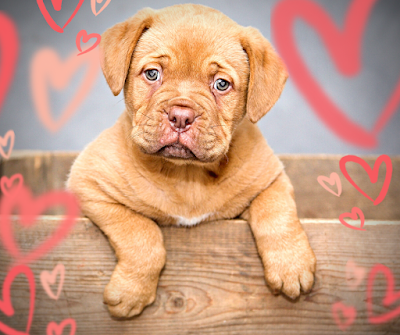Five Puppy Behaviors to Nip in the Bud Early
Puppies are highly receptive to learning the first 16-weeks of their lives. But that doesn't mean a dog older than 16-weeks cannot be trained. To foster a well-behaved adult dog, it's crucial to address specific behaviors in puppies early on. Here are five of behaviors you should consider focusing on early in your dog's life:
- Chewing: Puppies will chew on things for a variety of reasons. Just like a human baby, your puppy may be teething and chewing on things provides relief. Another reason is that your puppy is bored and looking for exploration. To help your puppy, provide lots of chew toys & redirection when chewing on an unacceptable item. In addition, you will want to make sure your puppy is getting enough exercise-- physical and mental-- to allow their natural tendency to explore to be satisfied.
- Biting: When dogs play, they naturally nip at each other, and usually will let a play partner know when play is becoming too rough. One way a puppy can learn not to bite too hard is through socialization with other dogs. It is important to start socializing your dog with not only other dogs, but also with people as early as possible. You should never punish your puppy for biting too hard or use your puppy's crate as a punishment. Instead, when your puppy bites you too hard, give a yelp and ignore them for 20 seconds. If your puppy's play is getting out of control, it may be that your puppy is getting over stimulated and playtime needs to end.
- Jumping: A dog's natural tendency will be to jump up on people to greet them-- nose to nose. But, this can be dangerous, because your dog may end up knocking someone over. Instead, teach your dog to "sit" to be greeted.
- Separation Anxiety: Dogs are natural pack animals and do not like to be separated from the pack (meaning you), but it is unrealistic to bring your dog everywhere you go. On the flip side, you should not leave your dog alone for hours at a time. This is not psychologically good for your dog. To introduce your puppy to being separated from you, start with a gradual introduction for short periods of time. Slowly, over time, increase the duration of the separation. Your puppy should be crate trained and comfortable with being in a crate when you are separated from them. Give your puppy plenty of exercise beforehand, so they are tired. When you leave, let them rest in their crate with comfort items. Reminder: A dog's crate is their den and should never be used as a punishment area.
- Potty Training: Potty training needs to be a consistent routine. Take your puppy our regularly, especially after meals and naps. Always praise your puppy when they use the bathroom outside. Never punish your puppy for having an accident in the house.
No matter what age your dog is, remember that training never stops. Always refresh your dog's memory with frequent, short trainings. Trainings should be short and sweet-- only 5 to 10 minutes at a time, several times a day. Be positive, have fun and practice with patience. Consistency is key when it comes to being a dog parent.
.png)



Comments
Post a Comment